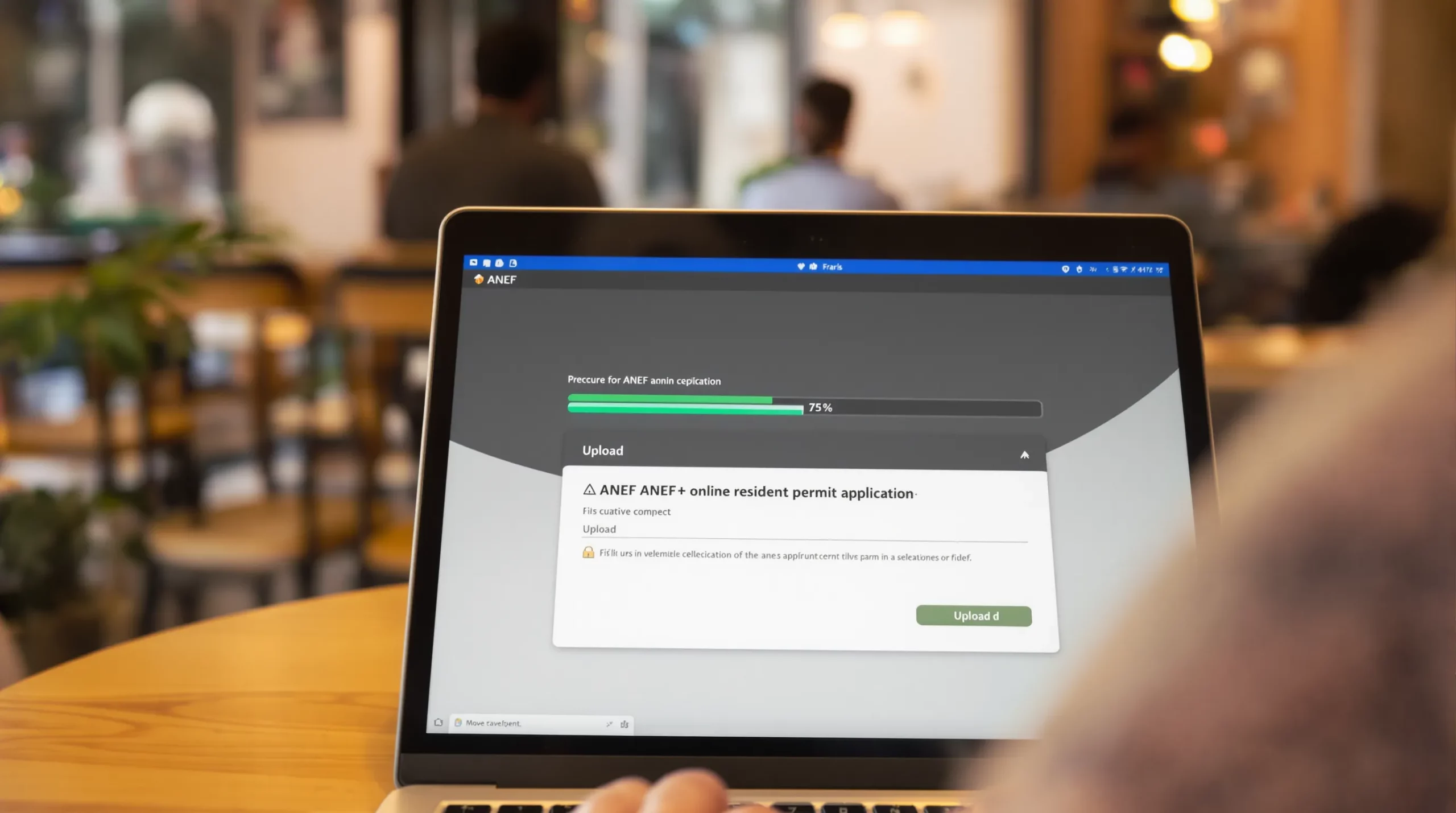The Complete Guide to France’s 2025 Immigration Reform and What It Means for Expats

Why everyone is talking about France’s 2025 Immigration Reform
On 26 June 2025, the long-awaited “Loi pour contrôler l’immigration et améliorer l’intégration” was finally adopted after more than 18 months of parliamentary debates. The reform reshapes nearly every chapter of the French Code de l’Entrée et du Séjour des Étrangers (CESEDA): work permits, residence cards, OQTF rules, access to social benefits, and even naturalization pathways.
For the 7.1 million foreign nationals currently living in France (INSEE, 2024) and the hundreds of thousands planning to relocate each year, understanding the new rules is more than a legal nicety—it is essential to avoid costly mistakes or, worse, an expulsion order.
In this guide, ImmiFrance’s legal team breaks down the 2025 reform in plain English, explains who is affected, and offers actionable steps for expats, international students, and employers.
1. At a glance: what changed on 1 July 2025?
- A new “Talent-Abroad” work permit (Passeport Talent Monde): a fast-track 4-year card for highly skilled profiles earning at least 1.5× the French median salary (≈ €34 650 gross in 2025).
- Regularization via “shortage occupation” jobs: undocumented workers employed for 12 months in officially listed sectors (restoration, healthcare, construction, agri-food) can now apply for a 1-year renewable “Travail en tension” permit.
- Tighter rules on family reunification: income threshold raised by 15 %, coupled with a mandatory 6-month French language course for spouses.
- Digital prefecture appointments: by December 2025, all residence-permit applications must be filed online through the new ANEF platform—walk-in submissions are being phased out.
- Automatic OQTF enforcement: prefectures must transmit removal orders to the interior ministry within 48 hours, enabling rapid entry bans.
- French citizenship by decree: the residency requirement for naturalization remains 5 years, but language proficiency (DELF B1) now includes a mandatory civic-values interview conducted in French.

2. Who is affected—and how?
2.1 International employees & tech founders
Good news first: the Passeport Talent Monde merges the previous “EU Blue Card”, “Talent Passport—innovative project”, and several sub-categories into a single, clearer scheme. Approval times are capped at 30 days for complete files, and an online tracker lets applicants monitor progress in real time.
What you need to do:
- Confirm your gross French salary meets the €34 650 threshold or that your VC-backed start-up has secured at least €100 000 in funding.
- Collect proof of diplomas or 3 years of professional experience.
- Submit digitally via ANEF-Emploi; paper files will be rejected from 1 October 2025.
ImmiFrance offers a dedicated Passeport Talent Monde package, including employer attestation drafting and direct liaison with DIRECCTE (learn more: https://immifrance.com/services/work-permit).
2.2 Undocumented workers (sans-papiers)
The reform introduces a one-shot opportunity: if you have worked a cumulative 12 months (full-time equivalent) in a shortage occupation since January 2023 and can show payslips or URSSAF employer declarations, you can apply for the new “Autorisation provisoire de séjour – Travail en tension”.
Key points:
- Only 19 sectors qualify; the official list is published on the government portal (source: Ministère du Travail, 2025).
- Applications are lodged by the employee, not the employer, eliminating the previous veto some bosses held.
- The card is valid for 12 months and renewable twice. After three years of continuous residence, holders can transition to a standard salaried permit.
2.3 Students & graduates
- The APS (Autorisation Provisoire de Séjour) 12-month job-search visa becomes automatic for master’s graduates in STEM fields, provided they sign a “France-skills” integration charter.
- Simultaneously, tuition fee waivers for non-EU students are curtailed; budget accordingly.
2.4 Families & spouses
- The minimum net income for family reunification is now set at 110 % of SMIC (≈ €1 721/month after taxes). Child benefits can no longer be counted.
- Spouses must register for a 6-month OFII language and civic course upon arrival. Failing attendance triggers a suspension of residence rights.
2.5 Asylum seekers
While the asylum procedure itself is outside the reform’s scope, Article 37 limits access to Aide Médicale d’État (AME) to emergency care during the first 9 months of arrival. Plan private health coverage if possible.
3. Step-by-step: preparing your dossier under the new rules
- Create an ANEF account (https://administration-etrangers-en-france.interieur.gouv.fr). Use the same email address for all future filings.
- Scan documents at 300 dpi in PDF format. The platform rejects files over 5 MB.
- Pay fiscal stamps online via the official timbres.impots.gouv.fr site; physical stamps are no longer accepted.
- Track your file: the ANEF dashboard shows four statuses—Draft, Submitted, In review, Decision. Push notifications via SMS go live in September.
Need help? Our step-by-step video walk-through is available to ImmiFrance clients inside the client portal.
4. What happens to existing residence permits?
Holders of permits issued before 1 July 2025 keep them until they expire. Renewal, however, must follow the new categories:
- Old “Passeport Talent—entrepreneur” cards will convert to Passeport Talent Monde – Créateur d’entreprise.
- 10-year residence cards (“Carte de résident”) remain unchanged, but travel outside France for more than 24 consecutive months now voids the card automatically.
Plan your trips accordingly or request a return visa before leaving France for extended periods.
5. OQTF: Faster, but still contestable
The reform speeds up data sharing between prefectures and border police, meaning an Obligation de Quitter le Territoire Français (OQTF) can now result in a Schengen-wide entry ban within days. However, your right to appeal within 48 hours (urgent procedure) or 30 days (standard) is unchanged.
ImmiFrance’s litigation partners have already secured four successful OQTF cancellations since July. If you receive an order, contact us immediately: https://immifrance.com/oqtf-appeal.
6. Practical tips to stay compliant in 2025-2026
- Register your address changes online within 3 months. Failure incurs a €200 fine.
- Digital copies are king: keep originals, but prefectures rarely handle paper now.
- Watch your pay slips: if your salary drops below the permit threshold for more than 3 months, renewals can be refused.
- Save the ANEF export receipt (Fiche récapitulative) after submission; it carries legal weight if processing exceeds statutory deadlines.

7. Frequently Asked Questions (FAQ)
Does the reform affect British citizens with Withdrawal Agreement status?
No. Holders of “Article 50 TEU” cards keep their rights. Renewals still follow Brexit-specific rules.
Can I still switch from a visitor visa to a work permit inside France?
Yes, but only if you meet the new talent-permit criteria or obtain labour-market authorisation from OFII before your visitor status expires.
Are remote workers eligible for the new Talent-Abroad permit?
The law is silent on 100 % remote roles. Prefectures currently require at least a hybrid contract with a registered French entity.
Is health insurance mandatory for the “Travail en tension” permit?
Yes. Once you obtain the temporary card, you must register with CPAM within 3 months or risk non-renewal.
What language certificate is accepted for naturalization?
Only the DELF or TCF issued within the last 2 years at minimum B1 level. Online certificates are not accepted.
Ready to navigate the new landscape?
The 2025 reform is the most comprehensive overhaul in a decade. Whether you’re building a tech start-up, regularising your status, or reuniting with family, the margin for error has never been slimmer.
ImmiFrance’s bilingual lawyers and case managers stand ready to:
- Audit your eligibility under the new categories.
- Assemble a bullet-proof digital dossier.
- Represent you in prefecture appointments or appeals.
Book a free 15-minute consultation today: https://immifrance.com/book-a-call.
Take control of your French journey—before the new rules take control of you.
